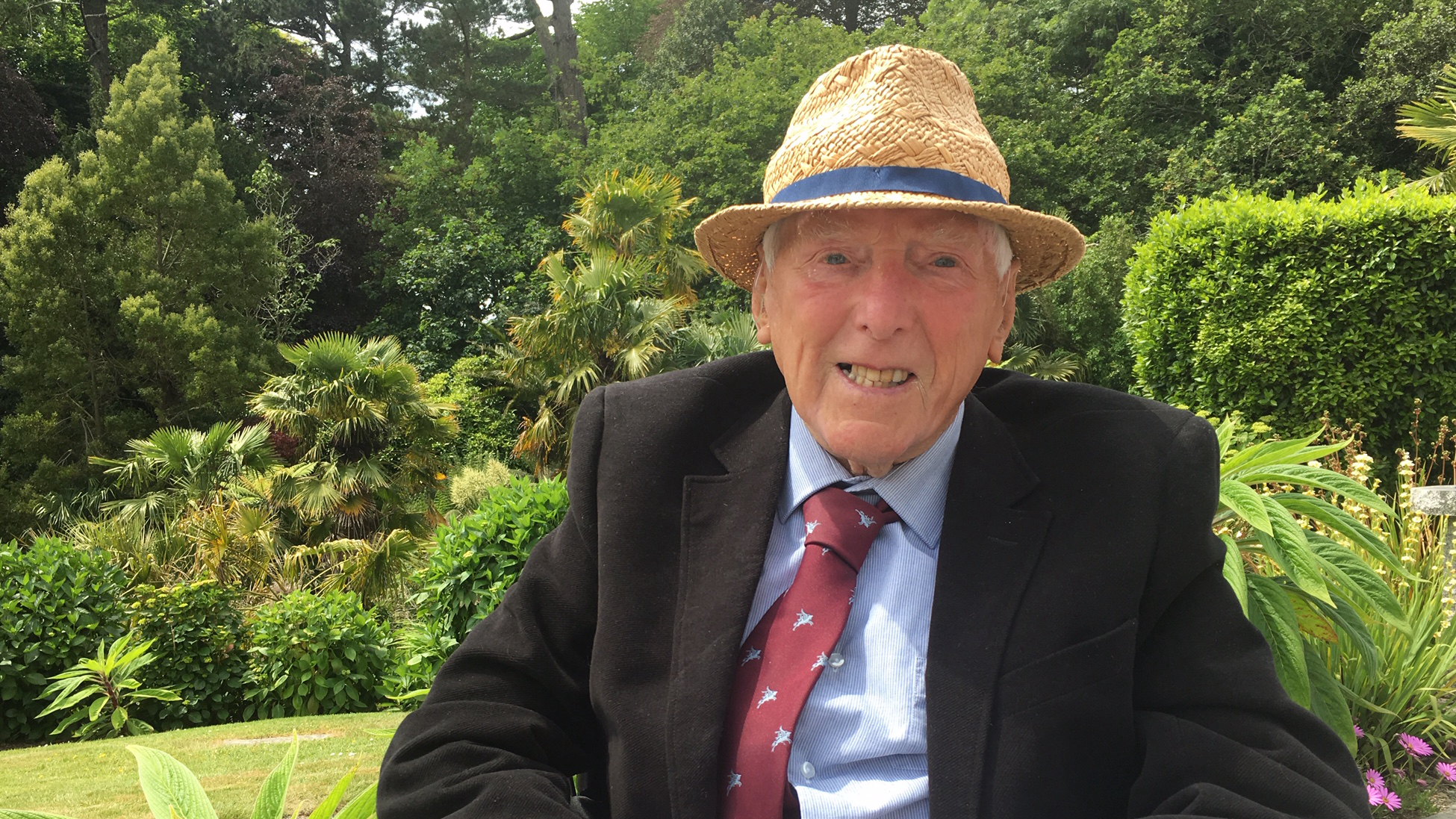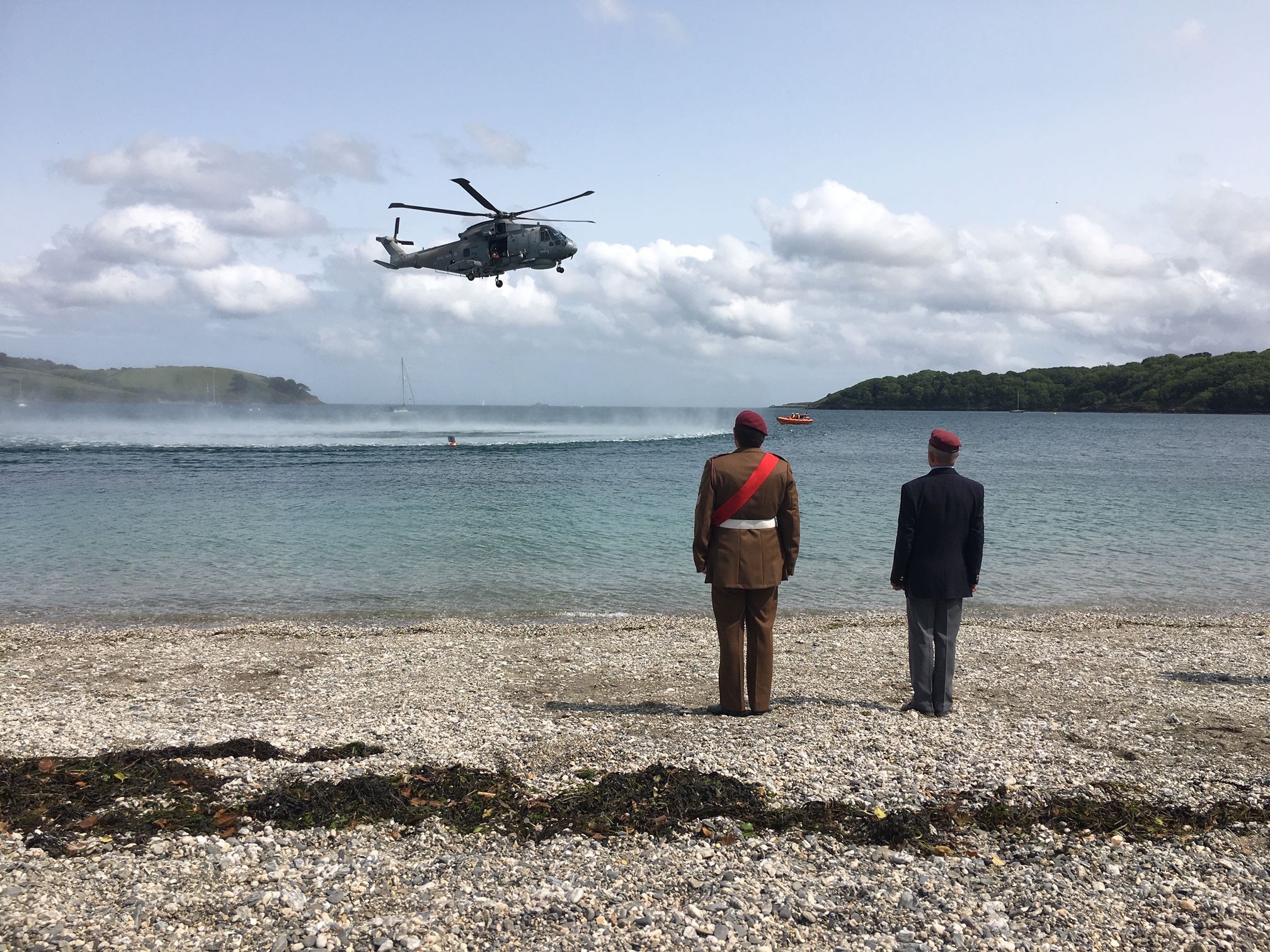
Europe
19:58, 07-Jun-2019
Trebah Bay remembers American troops who sailed from its shores for Normandy
Updated
22:53, 07-Jun-2019
Kitty Logan

Trebah Beach is a picture of tranquility today. Kayaks paddle on its calm clear waters and boats sail down Helford River on a warm late spring evening. But 75 years ago, this secluded Cornish cove looked very different.
The beach was covered in concrete, with large American naval ships docked at the makeshift pier in its deep waters, loading vehicles and equipment ahead of D-Day. On June 1, around 7,000 troops from the U.S. 29th Infantry Division boarded the ships and left from Cornish shores, sailing west along the coast before joining the rest of the Allied fleet heading for the Normandy coast.
The Americans came to the area to plan, prepare and train for D-Day, otherwise known as Operation Overlord. Their presence was shrouded in secrecy. They set up sealed camps, locked down roads, fenced off the beaches with barbed wire and forced residents to turn off the lights at night. No-one was to know what they were preparing for.
Despite the clandestine nature of the U.S. deployment, Kally Hutchings remembers well when the American soldiers came to her village. She was eight years old at the time. "One day I was walking home from school, there were all these jeeps stationary, one behind the other," she says. "All full of young Americans. We were told to get off the roads."
But at the height of war-time austerity, local residents welcomed their unexpected American guests. "We were given Lucky Strike cigarettes and we had a lot of chewing gum," says Kally. "Oh, we went home running then, to show our mum what the Americans had given us."

Trebah Beach memorial. /CGTN Photo
Trebah Beach memorial. /CGTN Photo
The villagers did not realize at the time that those U.S. soldiers were destined for one of the most bitter battles of D-Day at Omaha Beach in France. Many of them lost their lives there. The local community at Trebah holds a memorial event every year to mark their departure. The small, intimate ceremony also pays tribute to local veterans.
In June 1944, Ken Angell was a young soldier with the Oxford and Buckinghamshire Light Infantry. He courageously crossed the English Channel in a powerless, clumsy glider, silently landing to face the German enemy head-on. "They started shooting at us. They all knew we were coming," he says.
"We were destined to go to Herouvillette and hold the high ground outside Herouvillette. We were in there for three months. And every day, night and day, there was shelling."
Despite the stiff resistance, Ken's unit advanced towards Caen. "We were protecting a flank of the people that were going into Caen," he says. "But they couldn't get in there. So, we were taking the flak because Caen had not been captured."
In the lush, leafy Trebah Gardens overlooking the cove, veterans, dignitaries and local people gather to remember the bravery of those Allied soldiers who fought and died to liberate Europe. Ken's family gently help him from his wheelchair so he can walk a few steps lay a wreath of red poppies at a memorial plaque. A musician plays the Last Post from the shade of the trees, everyone touched by the soldiers they had met, who were killed during the D-Day offensive and in the days and weeks which followed. "All those young Americans that I saw and passed in their stationary jeeps," says Kally. "I think it's marvelous that in this day and age we're remembering them and they didn't lose their lives for nothing at all."
For those who fought in Normandy, the memories have also lingered for a lifetime. With tears in his eyes, Ken remembers the men in his unit who died when their glider crashed into the sea. "One of the worst times was coming back and going into our barracks. And I looked around and all those empty beds. That was the worst time," he says.
The ceremony is interrupted by the sound of a helicopter overhead. As the crowd moves down to the cove, it circles around and hovers low over the water, stirring up spray. A door opens and a crewman carefully winches down a rope, gently dropping a wreath into the sea, before saluting the crowd. The American soldiers may have left for Normandy 75 years ago, but the people here in Trebah have never forgotten that they have gone.
(Cover photo: Ken Angell, D-Day veteran. /CGTN Photo)

SITEMAP
Copyright © 2018 CGTN. Beijing ICP prepared NO.16065310-3
Copyright © 2018 CGTN. Beijing ICP prepared NO.16065310-3